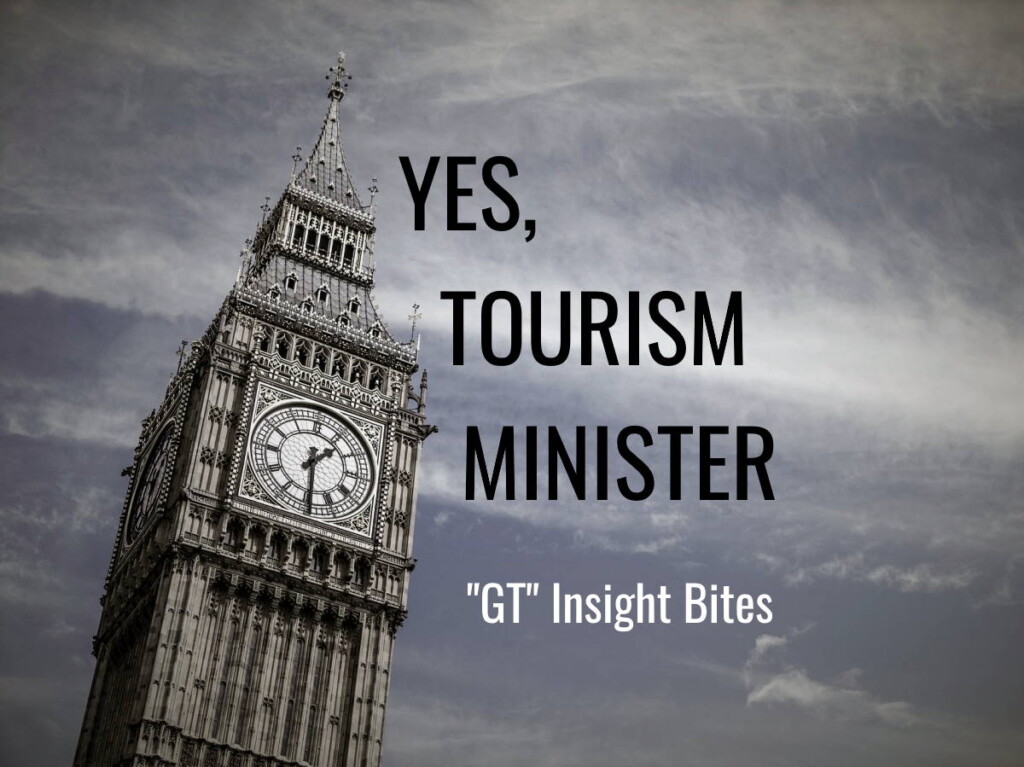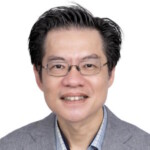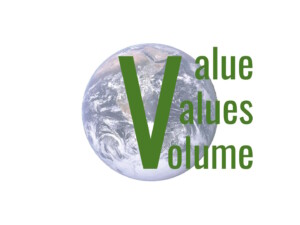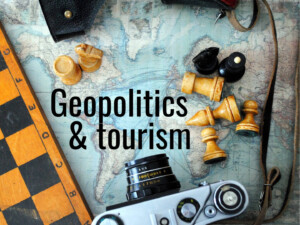Yes, Tourism Minister

You learn that you will be appointed Tourism Minister of your country in January 2023.
To help prepare yourself for media interviews, draft a brief summary of your vision for the future of tourism in your nation.
Your correspondent put this hypothetical to a range of travel & tourism stakeholders — “GT” Insight authors, “GT” Partners, and their invitees — and invited emailed written responses of no more than 300 words.
One respondent, who declined to participate in this “GT” Insight Bites, wrote:
“Thanks David, but I do not wish to be the Tourism Minister of any country. They have no powers whatsoever and just need to do what the finance, foreign affairs, and economics ministers tell them. Let me know if the office of PM becomes available and I will have an opinion.”
- Karen Simmonds — UK: Tourism ‘for good, creating peace and prosperity’
- Saverio F Bertolucci — Italy: Collaborative marketing, transport, agriculture
- K Michael Haywood — Canada: Tourism as ‘a pathway to hope and happiness’
- Susan Eardly — Sri Lanka: A green and inclusive future for tourism
- Zohreh Khosravi — Iran: Access, ease, income, employment, foreign exchange
- Kevin Phun — Singapore: ‘People are our strength’
- S Fatemeh Mostafavi Shirazi — Iran: ‘Image and reputation are key’
- Jonathon Day — Notes for a new leader
- Issoufou Adamou Hassane — Niger: Tourism a key to ‘Cultural Renaissance’
- What do you think?
Previous “GT” Insight Bites:
- What are tourism’s biggest challenges & threats over the next five years?
- ‘Tourism is built on the backbone of white supremacy’. What do you think?
- Really, what’s the difference? ‘Sustainable tourism’ vs ‘regenerative tourism’
- Want a career in tourism? Important things you should know
- Diverse perspectives on travel & tourism and a fairer world
- Diverse perspectives on economic degrowth and tourism
- Diverse perspectives on visitor dispersion
UK: Tourism ‘for good, creating peace and prosperity’
Karen Simmonds, Founder, Travel Matters, UK
We are all part of an ecosystem. We are interlinked with one another; visitors and hosts. We are all global citizens who can learn from one another.
I want to see a tourism industry in which everyone is treated with respect and dignity.
I want to show how travel & tourism, when done right, can impact the world in a positive manner; be a force for good, creating peace and prosperity.
I am passionate about travelling and aim to share how collectively we can care for our planet and people through tourism.
To that end, let us favour partnering with community-owned and ‑managed lodges or hotels, where we can have a meaningful local impact; source local goods and services.
Let us ensure long term economic benefit for tourism businesses that offer fair pay and conditions for all employees.
For travellers, let us offer safe and satisfying new experiences, including opportunities to interact with happy locals, who also truly benefit.
Let us keep destinations special. It’s vital for destinations to conserve their ancient culture and traditions, wildlife and habitats. Let us ensure that they continue to be great places for us all to visit for generations to come.
We need to respect nature and the planet as a whole
Let us fly less; use public transport where possible; take a train, or any electric form of transport; walk.
If we must fly, let us make choices that encourage airlines to reduce their emissions; carry less baggage; take a charter flight; fly economy; avoid domestic flights.
Let us enjoy fewer, but longer breaks where our travel creates real benefits to conservation and communities in the places we visit.
Let us ‘make travel matter’.
Italy: Collaborative marketing, transport, agriculture
Saverio Francesco Bertolucci, Administrative Assistant, Alcambarcelona, Spain
As Italian Minister of Tourism, I would firstly develop a tailored customer marketing strategy in a co-creative approach with mayors and destination management organisations.
Secondly, there needs to be greater collaboration with the Ministry of Transport in order to address tourists’ as well as communities’ needs. Faster, more efficient, and wider transportation is needed in order to tackle mass tourism.
Lastly, together with the Agriculture Minister, I would boost rural areas that are specialised in wine, olive oil, truffles, and mushrooms to enhance the importance and consumption of such rare and premium goods only Italy can offer.
Canada: Tourism as ‘a pathway to hope and happiness’
K Michael Haywood, Professor Emeritus, University of Guelph, Canada
Destination Canada’s transition from recovery to resilience is an actionable quest for a more predictable, new normal or, more likely, a contentious abnormal.
Our ability to thrive now demands that we redesign tourism to enhance the quality-of-life for all our citizens, and magnify the joys of our hospitable communities-as-destinations for both hosts and guests.
While our prime responsibility has always been to serve as tourism’s worldwide ambassador, our advocacy for tourism, as a pathway to hope and happiness, has to be authenticated in Canada. This means that our focus on growth as a determinant of competitiveness will be tempered.
In an era of vulnerability from the compounding effects of permacrises, particularly climate change, our responsibilities and strategies have to shift toward ESG (environmental, social, and governance) initiatives.
Real progress will demand further soul-searching and action, including finding ways to improve remuneration in our sector, and to expand opportunities for engagement in determining tourism’s role in our communities, particularly our indigenous ones.
Consistency in creating and delivering value that is life-affirming and societally impactful has to be extensive if it is to advance everyone’s “wellth”. This means working more collaboratively with Tourism’s Human Resource Council especially on the delivery of diversity, equity, and inclusion initiatives.
Placemaking improvements will be achieved, in part, through development of Tourism Innovation Hubs. To this end, we will work tirelessly to provide the research, resources, and assistance to ensure that our provincial and local counterparts can:
- Clarify their own sense of purpose for tourism;
- Ensure our country’s legendary experiences ascend to magnificence;
- Realise the necessity for tourism to operate with a social license;
- Maintain the health, richness, and vitality of our destinations; and thereby,
- Contribute to accelerating Canada’s brand resonance.
“O Canada we stand on guard for thee …”
Sri Lanka: A green and inclusive future for tourism
Susan Eardly, Founder, Serene Vacations, Sri Lanka
Sri Lanka has always been a global attraction.
With beautiful sandy beaches, scenic tea plantations, lovely waterfalls, exotic wildlife, and rich natural and cultural heritage sites — such a diversity of attractions — Sri Lanka has high potential for the development of tourism.
My vision would be to:
- Promote green travel that protects the environment;
- Implement an inclusive growth model for the people; and
- Leverage Sri Lanka’s social, cultural, political, and economic values to achieve the Sustainable Development Goals and mitigate the negative impacts of climate change.
Sri Lanka, with its marvellous natural resources, has it all for a traveller looking for mental and health relaxation. By unlocking the potential of nature-based tourism in Sri Lanka, we can deliver more inclusive and sustainable growth in new areas, including rural communities.
It’s important to implement policies that create opportunities for all. To that end, I would consider leveraging new digital technologies to expand access to tourism education and training which will offer all Sri Lankans the opportunity to benefit from tourism’s future growth.
Iran: Access, ease, income, employment, foreign exchange
Zohreh Khosravi, content strategist, Iran
Iran offers a variety of tourism destinations to suit diverse interests and travel preferences. Our nation could become one of the most well-liked travel destinations in the world thanks to its rich biodiversity, indigenous culture, long-standing written history (dating back several thousand years), and the infrastructure that is required to draw health and medical tourists.

I want to put a number of initiatives on the government’s agenda as Iran’s potential tourism minister.
- We need to make overseas visitors’ access to Iran visas as simple as feasible. Even for nationals of some nations, we ought to do away with the tourist visa and let them visit Iran for up to 15 days without needing one.
- We should ensure that the rail, aviation, and lodging infrastructure meet international standards. We have to establish a foundation for tourists to feel at ease and secure by expanding the air fleet, enhancing the standard of flights and trains, raising the bar for accommodations, and improving the level of hospitality services.
- By creating and editing documentaries about Iran’s natural settings, we hope to introduce the country’s original culture, natural heritage, and historical legacy to foreign tourists.
- For travellers planning to visit Iran, we have to create a trip handbook with comprehensive information from 0 to 100 travel tips, and make it available in many languages. To guide foreign tourists, we have to employ or train tour operators and travel advisors who are fluent in English, Arabic, French, and other languages.
By and large, we should alter government policies to concentrate on tourism income, and stabilise employment and foreign currency income via tourism.
Singapore: ‘People are our strength’
Kevin Phun, Founder & Director, The Centre for Responsible Tourism Singapore, Singapore
Tourism is an important industry for Singapore.
We have always been dependent on global trade, transport, travel, and tourism for employment and foreign investment.
However, the global pandemic that struck much of the world over the last two-and-a-half years has changed the way many governments think about travel & tourism. We should too. Let’s review our strategies and redesign them.
We are a small country, with almost no natural resources.
So let’s focus not on visitor arrival numbers, but on yield, and how tourism can improve the quality of our hard and soft infrastructures, local culture and heritage, and our natural environment (which is also largely untapped as an ecotourism attraction).
People are our strength.
We have a diversity in our society that is unique. Tourism should better engage with this aspect of us. For example, our multicultural hawker food culture has been recognised by UNESCO as world-class intangible cultural heritage. And we have so much more that can be described as such.
So why not develop and promote cultural heritage tourism? It is something that we have often talked about but not pursued. To that end, let’s identify intangible aspects of our heritage and culture that the tourism industry can market to foreign travellers as part of Singapore’s uniqueness.
Yes, people are our strength. So let’s give Singaporeans more of a say in how tourism is promoted and managed. Our people must feel that they have a stronger stake in our tourism industry. We must look harder at how to link the tourism industry with our people. Stronger links, fewer leakages.
Post-pandemic, we must relook at many of the things we that have been doing in tourism; throw out the old ways of thinking and doing, and embrace the new.
Iran: ‘Image and reputation are key’
S Fatemeh Mostafavi Shirazi, visiting scholar, Iran
Image and reputation are key to attracting visitors to any destination, including Iran.
The past few decades’ challenges, including war and sanctions, recent global crises (such as COVID), and general instability, have had negative impacts on Iran’s international image.
Rebuilding Iran’s image will be beneficial across many areas, including tourism, and should be considered the main priority for Iran in the near future.
To rebuild the image and reputation of Iran, especially in business matters, we will need to solve sanction problems and improve relations with other countries.
This will improve the operating environment for the hospitality industry, bring new investment, and attract international business travellers seeking new opportunities.
A renewed interest in business and investment in Iran will in turn will lay the groundwork for developing and improving Iran’s broader tourism infrastructure and facilities.
For example, these two high-value tourism niches represent good opportunities for investment in Iran’s hospitality industry:
- Iran’s potential for cultural heritage tourism is significant, with very diversified attractions including many UNESCO-registered sites; and
- Iran has great potential for health and medical tourism, and could start now by targeting neighbouring countries.
Of course, developing and/or reviving international tourism markets for any destination is a very complicated task, and requires continuous collaboration among stakeholders. To achieve this, Iran will need a comprehensive plan for collaboration among local, foreign, private, and public stakeholders.
Notes for a new leader
Jonathon Day, Associate Professor | Graduate Program Director, White Lodging — J.W. Marriott, Jr. School of Hospitality and Tourism Management, USA
Notes for the new DMO leader:
Congratulations. You have one of the best jobs in the world. You will be contributing to the lives of the people in your destination community and enriching the lives of your visitors.
As you start communicating with internal and external stakeholders about the work you’ll be doing together (because tourism is collaborative), keep these three things firmly in mind:
- Your role is to make life better for the people of your destination community. (You are not a supplemental marketing arm for the local hoteliers or entrenched industry stalwarts, no matter what they think.)
- You are building assets that can be used today and tomorrow. Nurture your natural environment and the unique culture of your place. These are the things that people come to see, and that is what destination stewardship is all about.
- Measure yourself against what is really important. Rather than just touting visitor growth, focus on whether the visitors spend more in local businesses, and contribute positively to the community when they visit.
Good luck in the new gig!
Niger: Tourism a key to ‘Cultural Renaissance’
Issoufou Adamou Hassane, Co-founder & President, Tourism and Local Development (TOLD), Niger
To be appointed Minister of Tourism of my country is a great honour for my modest person; an opportunity to lead a new dynamism for the sector.
In view of the current situation in Niger, it is important to project a medium and long-term vision to position tourism as one of the key sectors in a social transformation of the country; Niger’s “Cultural Renaissance” …
It is certainly necessary to speak of my vision for the sector in the language of truth; a truth based on a perfect knowledge of the strengths and weaknesses of tourism in Niger. But lucidity must not turn into pessimism that discourages and demotivates.
My vision is underpinned by a reformation of the governance of the tourism sector in Niger; to realign it for the benefit of the people and the State; to favour employment and economic dynamism beneficial to the stability of the country.
Furthermore, my vision includes:
- Improving the country’s image and attractiveness;
- Developing a tourist culture among Nigeriens;
- Preserving and enhancing Niger’s heritage (natural, cultural, and even historical);
- Building the capacity of the National Tourism Administration and our travel & tourism industry professionals; and
- Promoting investment and the development of innovative technological solutions.
Thus the following entities will be created under the supervision of the Ministry of Tourism Niger: A Tourism Observatory Agency, plus departments in charge of:
- Rural and community-based tourism development;
- Standards, labels, and promoting sustainability in tourism;
- Territorial marketing;
- Tourism and hospitality investment;
- Startup development and digital solutions; and
- Training and partnerships.
What do you think?

What do you think? Share your own thoughts in a comment below. Or write a deeper “GT” Insight. The “Good Tourism” Blog welcomes diversity of opinion and perspective about travel & tourism, because travel & tourism is everyone’s business.
Featured image (top of post): Yes, Tourism Minister … Elizabeth Tower at the UK’s Houses of Parliament. (‘Big Ben’ is the name of the clock’s main bell.) Image by Justin Vogt (CC0) via Pixabay.
Your correspondent’s choice of featured image was inspired by the opening title of the classic 1980s BBC comedy series Yes Minister.














